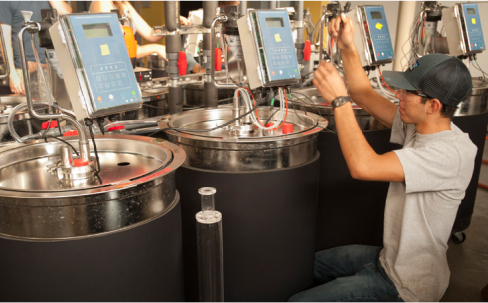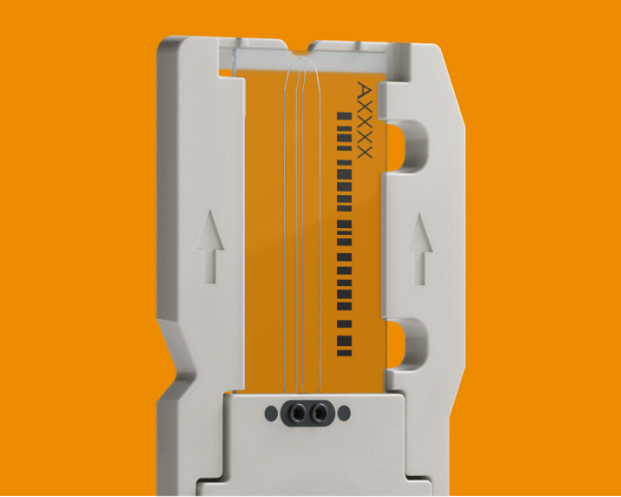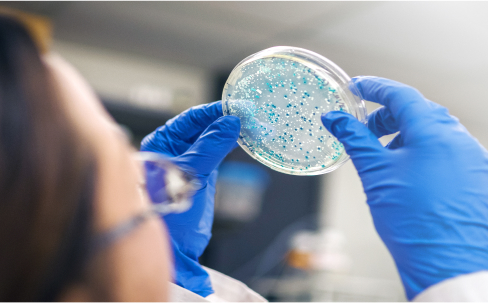
Wine, cheese, and the microbiomes that influence their flavor
Researchers at the University of California, Davis use the MiSeq System to identify the microbiome profiles of wine and cheese and the facilities in which they are made.
Explore the possibilities
The MiSeq System delivers flexibility and simplicity for a broad range of applications, including targeted gene and small-genome sequencing

We are making the MiSeq Sequencing System obsolete. It will be available for order until September 30, 2025. We will continue to provide full system support and the availablity of reagents through December 31, 2029. For more information, refer to PON2025-1657. The MiSeq i100 Series is the recommended alternative.
Small whole-genome sequencing (WGS) enables comprehensive analysis of microbial or viral genomes for applications in public health, infectious disease surveillance, molecular epidemiology studies, and environmental metagenomics. This approach does not require bacterial culture or labor-intensive cloning steps. Sequence up to 24 small genomes per MiSeq System sequencing run.
Nextera XT DNA Library Preparation Kit
Rapid library prep optimized for small genomes, PCR amplicons, and plasmids, requiring as little as 1 ng of input and 15 minutes of hands-on-time.
Fast, integrated workflow for a wide range of applications, including sequencing of whole human genomes, amplicons, plasmids, and microbial genomes.
MiSeq Reagent Kit v3 (600 cycles)
Pre-filled, ready-to-use cartridges containing clustering and sequencing reagents to support a 600-cycle run on the MiSeq System.
Open-source tool for de novo assembly of small genomes from MDA single-cell and standard bacterial data sets from next-generation sequencing data.
TELL-Seq Data Analysis Pipeline app
Two data analysis pipelines (Tell-Read and Tell-Link) for microbial genome assembly.
Browse sample data in BaseSpace Sequence Hub (login required): MiSeq small genome data
Estimated cost per sample: $80*
*Small whole-genome sequencing on the MiSeq System estimated cost per sample calculated 2016, based on 5 Mb genome, 50–100× coverage, 2 × 300 bp read length, Nextera XT Library Prep Kit, MiSeq Reagent v3 600-cycle kit.
Targeted gene sequencing focuses time, expenses, and analysis on sequencing only genes or genome regions of interest. Amplicon sequencing, the ultradeep targeted sequencing of PCR amplicons, enables cost-effective analysis of up to hundreds of target genomic regions in one assay. Sequence up to 96 samples and 1536 amplicons or more in a single MiSeq System sequencing run.
A highly multiplexed polymerase chain reaction (PCR)–based workflow for use with targets ranging from a few to hundreds of genes in a single run.
DesignStudio Assay Design Tool
A web-based assay design tool to help researchers design and order custom sequencing probes or create custom genotyping array assays.
MiSeq Reagent Kit v2 (300 cycles)
Prefilled, ready-to-use cartridges containing clustering and sequencing reagents to support a 300-cycle run on the MiSeq System.
An on-premises software solution for creating sequencing runs, monitoring run status, and analyzing data.
The Illumina genomics cloud-computing environment for NGS data analysis and management.
Our variant annotation and analysis software tools can help researchers extract and report biological insights from large volumes of genomic data.
Sequencing the 16S ribosomal RNA (rRNA) gene is a culture-free method to identify and compare bacteria from complex microbiomes or environments that are difficult to study. The Illumina demonstrated protocol for 16S rRNA sequencing can help take the guesswork out of experiments. Multiplexing lets you sequence up to 96 samples per MiSeq System sequencing run.
Indexes for pooling and sequencing up to 384 uniquely indexed samples on a single sequencing run.
16S metagenomic sequencing protocol
A comprehensive workflow using the MiSeq System for 16S rRNA amplicon sequencing.
MiSeq Reagent Kit v3 (600 cycles)
Pre-filled, ready-to-use cartridges containing clustering and sequencing reagents to support a 600-cycle run on the MiSeq System.
Taxonomic classification of 16S rRNA targeted amplicon reads using a version of the GreenGenes taxonomic database curated by Illumina.
Browse sample data in BaseSpace Sequence Hub (login required):
Estimated cost per sample: $10*
*16S rRNA sequencing on the MiSeq System estimated cost per sample calculated 2016, based on 96 samples, 2 × 300 bp read length, Nextera XT index primers, MiSeq Reagent v3 600-cycle kit.
Resource Spotlight
The MiSeq System self-service booklet is an interactive guide that includes clickable features accessible on your computer, tablet, and smartphone. Explore run preparation, instrument maintenance, troubleshooting, and much more. View video: MiSeq self-service booklet intro
Analyze protein interactions with DNA for genome-wide surveys of gene regulation.
Enable fast, accurate characterization of novel genomes with no reference sequence available for any species.
Isolate and sequence small RNA species, such as microRNA, to study the role of noncoding RNA in gene silencing and posttranscriptional regulation.
Perform quality control (QC) applications for bioproduction studies or assess the quality of a sequencing library before committing it to a full-scale run.
Focus time, expenses, and analysis on sequencing only genes or genome regions of interest.
Select and sequence specific transcripts of interest for gene expression profiling studies.
See what’s possible with the MiSeq System

Researchers at the University of California, Davis use the MiSeq System to identify the microbiome profiles of wine and cheese and the facilities in which they are made.

Researchers at Hvidovre University Hospital in Copenhagen, Denmark use the MiSeq System to identify strains of drug-resistant bacteria from around the globe.

Targeted sequencing uncovers novel variants associated with metabolic and neurological disorders.